
Urban SOS: Fair Share Semi-Finalists
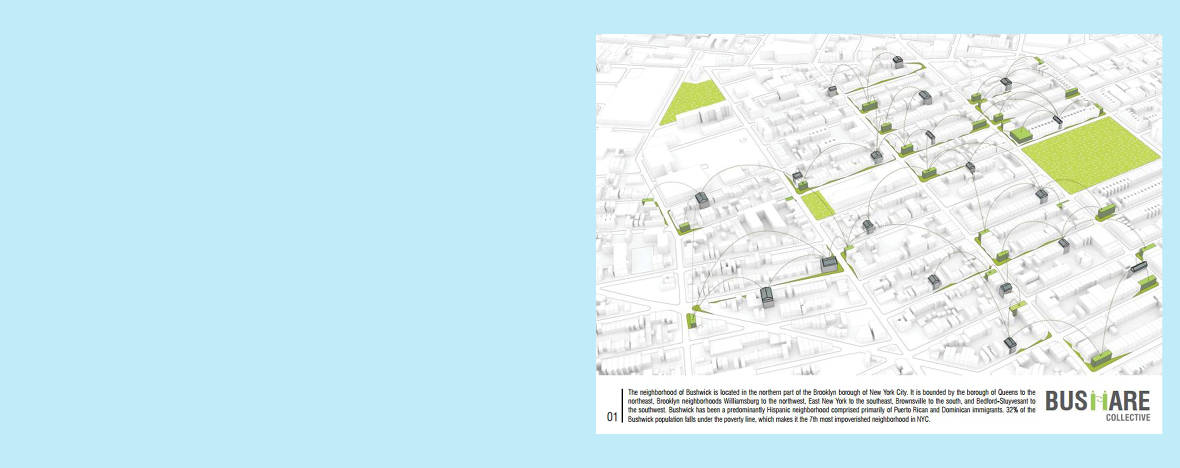
Bushare
Location: Brooklyn, New York, USA
Team: Carmelo Ignaccolo, Christopher Chiou, Yuting Pan, Linshu Huang
Institution: Columbia University
Focusing on the Bushwick neighborhood in Brooklyn, New York City, the team tweaks existing municipal policies and programs to support healthy food production, and creates new public spaces for buying, selling and composting food. The team proposes transforming everyday bodegas (corner stores) into local food hubs and creates an app that incentivizes people to bring unused food or food waste to these hubs.
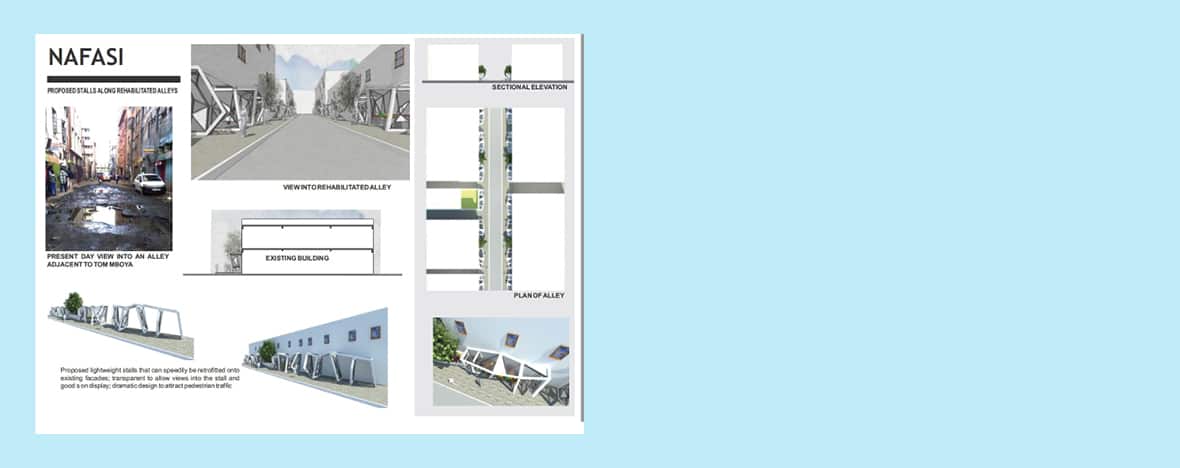
Nafasi
Location: Nairobi, Kenya
Team: Diane Priscilla Wakonyo, Jeff Kanae, Monica Wangari Njiru, Evelyn Magaju
Institutions: University of Nairobi, Kenyatta University, Daystar University
The team has proposed improving the overall quality of life along an extremely busy, highly congested, multiple mixed-use street in Nairobi, Kenya, using a combination of design improvements, regulatory changes and technology to resolve conflicts among the user mix. A mobile app will connect consumers and retailers to coordinate use of space more effectively and alleviate crowding.
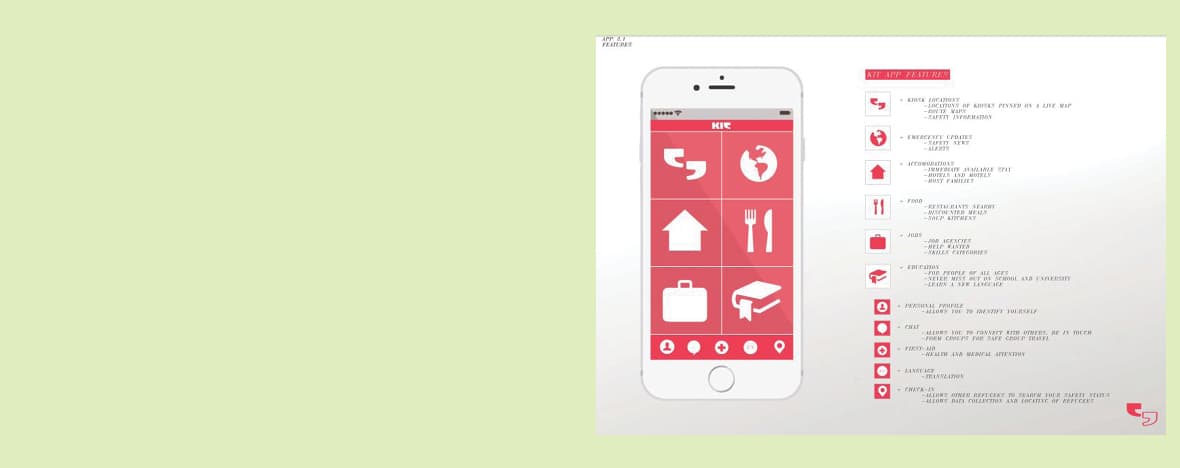
Keep in Touch
Location: Thessaloniki, Greece
Team: Diana Tao, Rayana Hossain, Advait Rajagopal
Institution: Harvard University
In a Greek port city that has been an entry point for countless migrants, this team proposes new welcome stations that provide cell phones, charging stations and other vital amenities. Using containers readily found on site and a sharing system that allows people to get rid of old, unused phones, the team creates a form of small-scale infrastructure that could be replicated at migration arrival points throughout Europe.
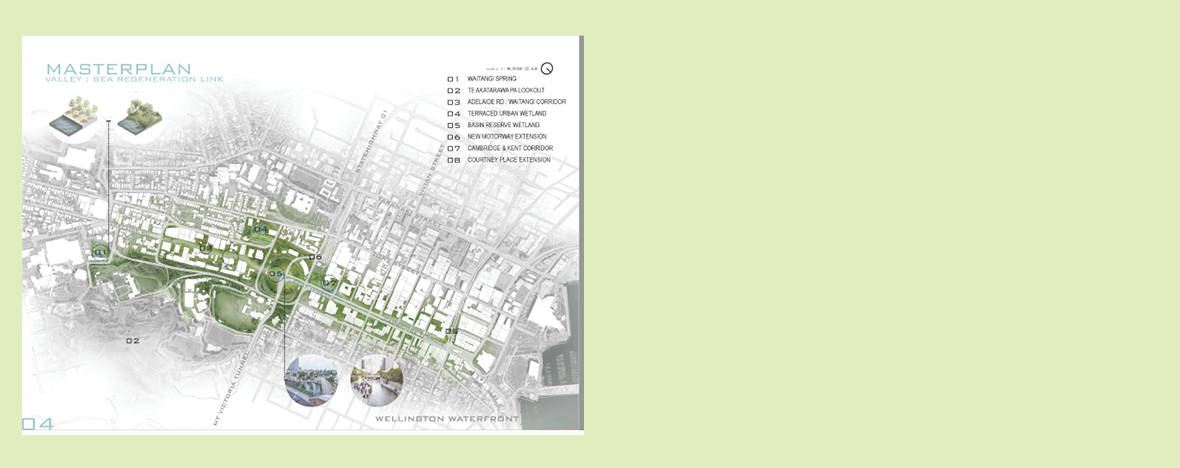
WhakaOra/To Restore Life: A Regenerative Walk from Valley to Sea
Location: Newtown, New Zealand
Team: Yousir Ali, William Kereru TeRangi Rei-Paku Hatton, Paula Wheeler
Institutions: Victoria University of Wellington, Arizona State University
This proposal seeks to reintroduce decimated ecological systems back into the urban density that has developed in the area. By restoring the Waitangi Stream through redevelopment, investment and diversification, their idea seeks to combine a linear hub inclusive of local ecology and urban life with the rich Maori tradition of walking and talking. A mobile interface will enhance the experience using information, facts, social interaction and storytelling.
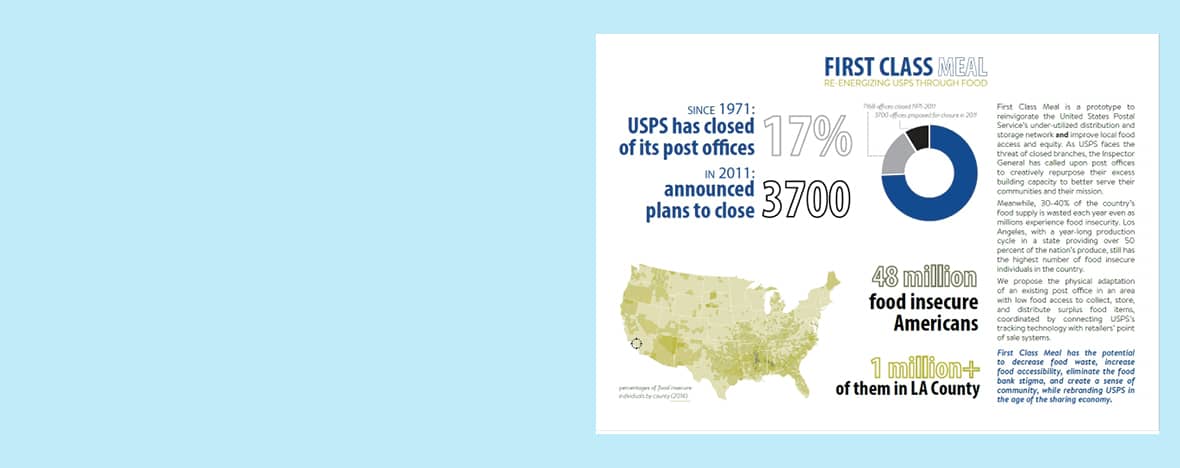
First Class Meal
Location: Los Angeles, California, USA
Team: Anu Samarajiva, Irum Javed, Lanxi Zhang
Institution: Washington University in St. Louis
The United States Postal Service has operating capacity and assets that can help supply an area with low food access to collect, store and distribute surplus food items, piggybacking on the daily tasks of current mail operations. The process connects existing technology by coordinating USPS’s current package tracking system with point-of-sale operating systems to identify readily available excess food for pick up and distribution.

WELP
Location: Durban, South Africa
Team: Mari Smith, Vivian Ly, Lixin Wang, Kate Maxfield
Institution: Monash University
In Durban, South Africa, a city that lacks the infrastructure for collecting hard waste (e.g., computers), this team proposes using digital technologies to pair households with waste to people who can collect it. The system would allow easier disposal of waste, and enable collectors to earn income and access new hubs throughout the city that provide temporary housing, kitchens and other amenities.
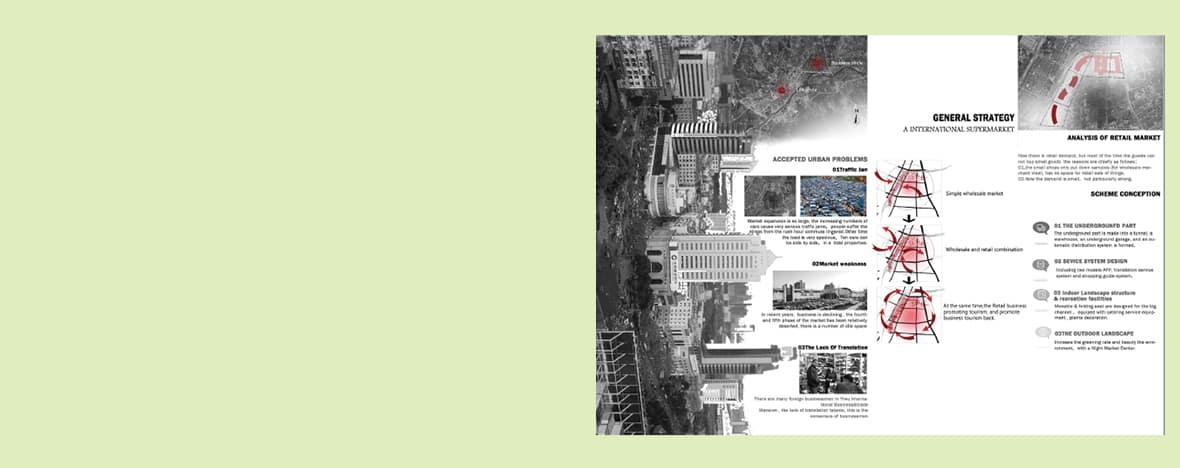
International Supermarket
Location: Yiwu, China
Team: Jiaqi Zheng, Shiwen Wang, Zhilin Jin, Shenglanjia Liu
Institution: Zhejiang University
In its current period of economic weakness, small businesses and shops in Yiwu are facing big challenges unless they can adjust or evolve. The team proposes creating a comprehensive, international small commodity supermarket space that can enhance tourism around Yiwu, and promote sustainable growth for local businesses. Technology will facilitate language skills and connectivity needs between tourists and businesses.
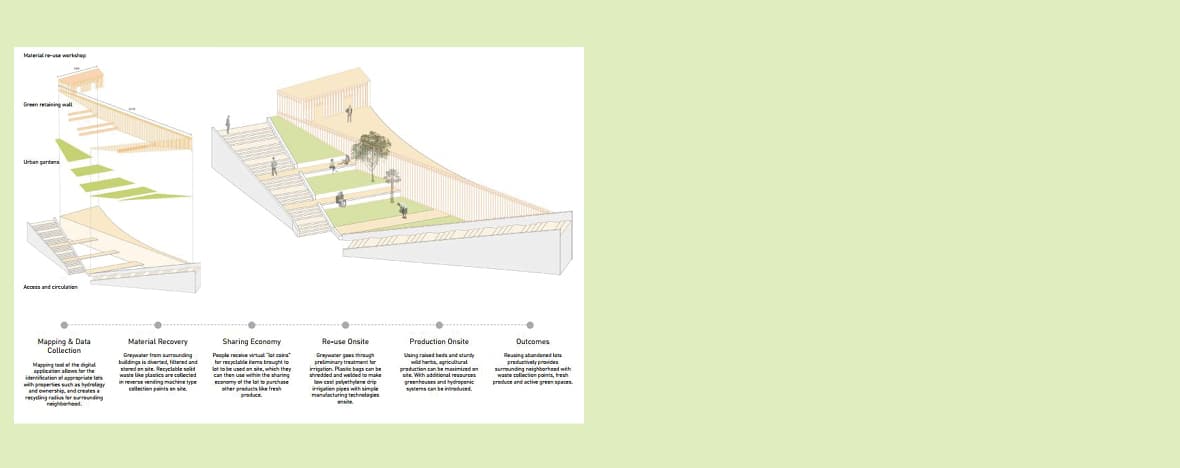
Lots of Growth
Location: Amman, Jordan
Team: Sara Tolgay, Zach Postone, Hannah Charlotte Twine, Garine Boghossian
Institutions: Massachusetts Institute of Technology, University of Adelaide
This team proposes a system for transforming unused or dilapidated parks in Amman, Jordan, into new multifunctional public spaces for capturing rainwater, recycling waste and growing food. The team introduces a sharing economy platform that encourages people to bring household plastics that can be shredded and reused as irrigation pipes, creating a system for rebuilding neglected infrastructure.
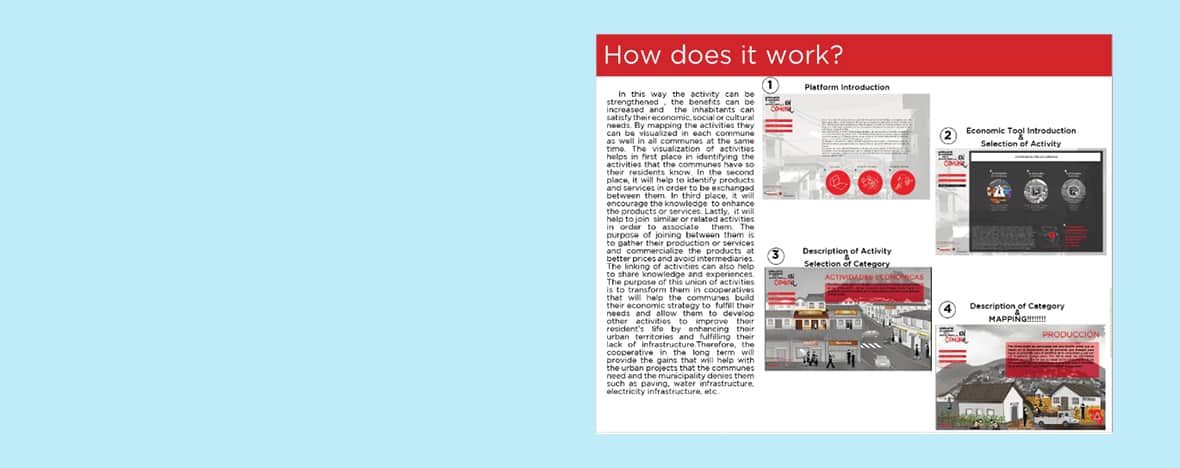
Sharing and Collaborative Economy for the Communes in Quito
Location: Quito, Ecuador
Team: Mateo Fernandez-Muro, Francisco Miranda
Institution: Parsons The New School for Design
Within a self-sufficient, local commune-type economy mandated by local political structures, this application proposes a new local economy using an online platform and app to coordinate small infrastructure projects, and increase collaboration to address problems more effectively by identifying and mapping local activities and services available to solve them. The tool identifies cooperative activities that leverage local commune power in a sharing model to maintain effective urban development.
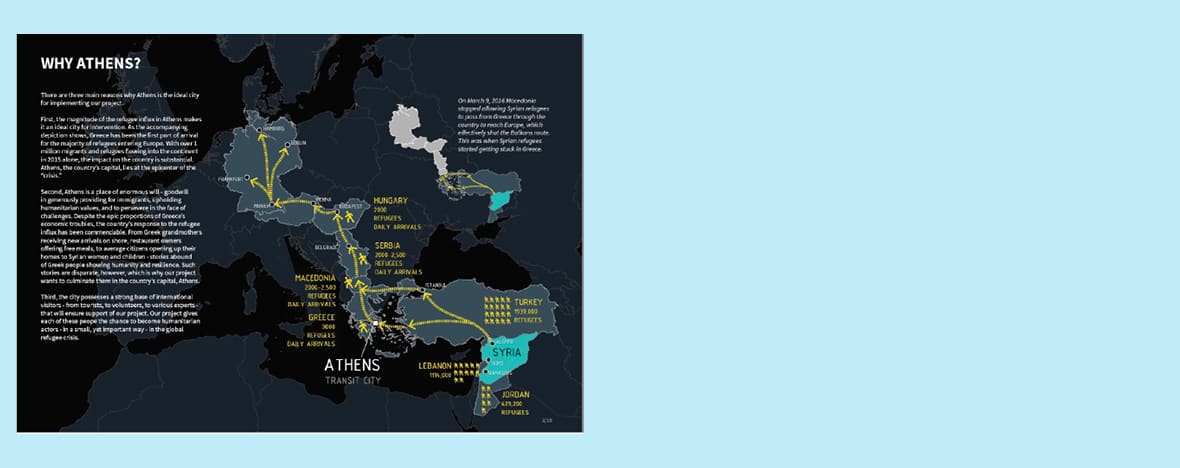
The Living City
Location: Athens, Greece
Team: Ho-Ting Liu, Faranak Khas Ahmadi, Anduriña Espinoza, Jenny Kyung Jin Lee
Institutions: Harvard University Graduate School of Design, UC Berkeley, University of Oxford, Columbia University
This team seeks to address the humanitarian refugee crisis currently impacting Greece. By capitalizing on the potential of the city’s numerous vacant buildings and abandoned spaces made available during economic turmoil, the team wants to transform refugees from passive victims to people with dignity, skills, experiences and know-how that can contribute to their host communities constructively.
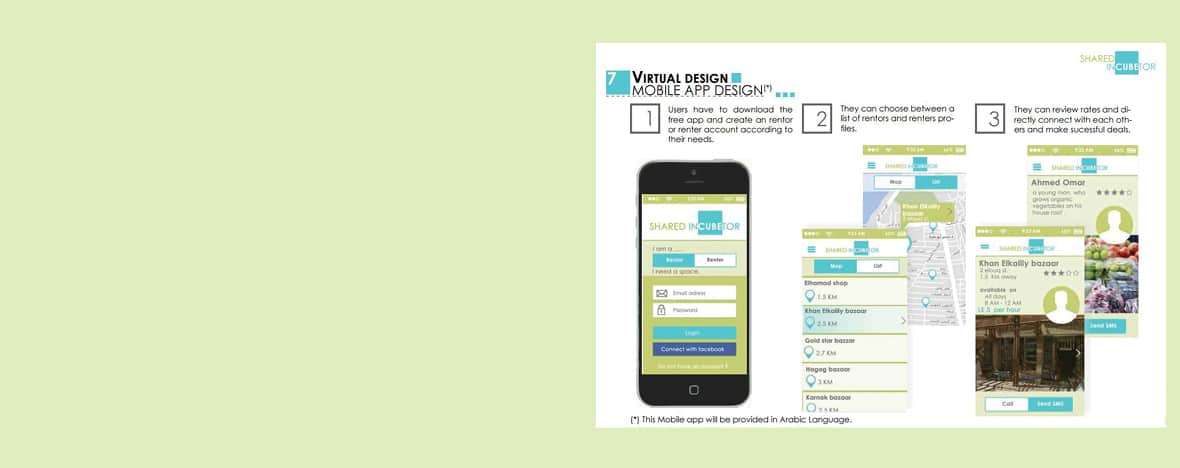
Shared Incubetor
Location: Luxor, Egypt
Team: Sarah Sayed Khalil, Moustafa Haroun Ismael, Mohamed Abo El-Enin Rabee, Hend Alaa
Institutions: Cairo University, University of Science and Technology at Zewail City
With political instability resulting in high unemployment, Shared Incubetor aims to offer affordable market space where budding businesses can easily launch their micro project. Based in Luxor, Egypt, the free digital sharing platform will connect young entrepreneurs with a desire to rent space to owners who have additional capacity.
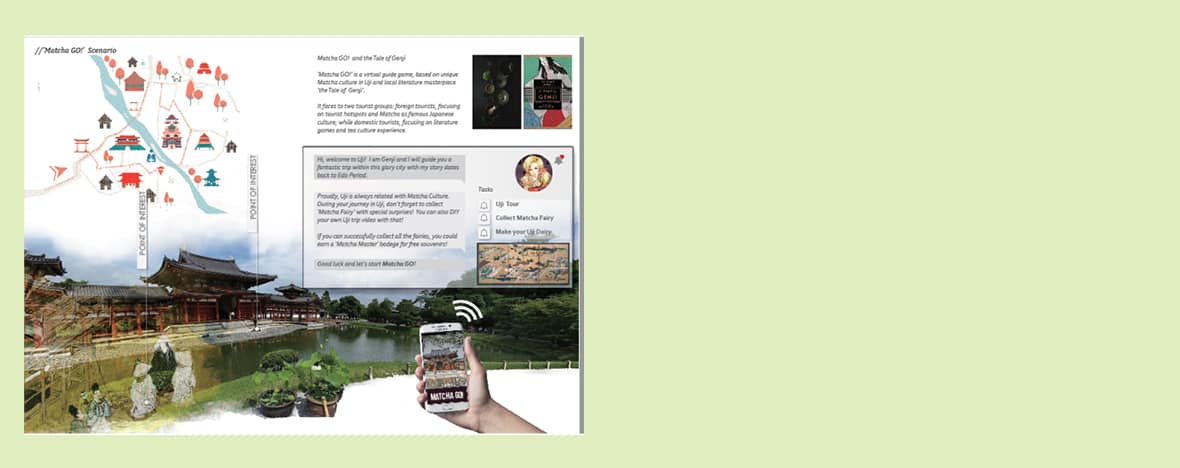
Matcha Go
Location: Uji, Kyoto Prefecture, Japan
Team: Baihe Cui, Yiling Li, Jin Wang
Institutions: University of Pennsylvania, Nanyang Technological University
Maintaining a young labor force is critical for a robust economy, but Uji is facing challenges in this area as its local population ages. This project aims to connect the skills of senior citizens and idle house space using mobile technology, creating a system where seniors can work and provide cultural and social services, resulting in increased tourism and a stronger local community.
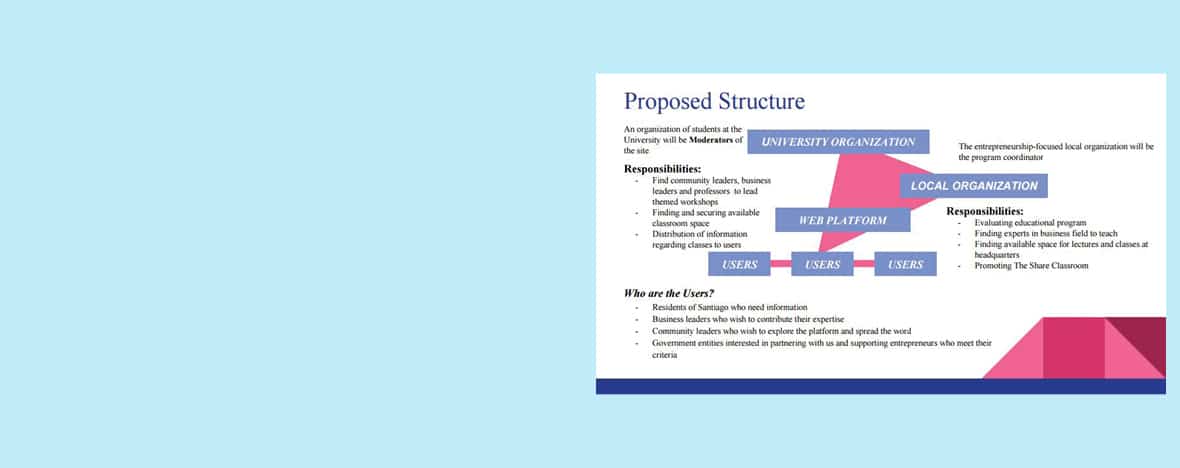
The Shared Classroom
Location: Santiago, Chile
Team: Michelle Espinal, Khaoula Morchid, Eryan Gwin, Ana Rodelas
Institution: University of Notre Dame
In Santiago, Chile, this team has proposed an innovative new digital platform that allows city dwellers from any socioeconomic background to access educational training and entrepreneurial expertise, equipping them to turn their ideas into businesses. The Shared Classroom will match demand for workshops with facilities, university faculty and professionals working in that industry.
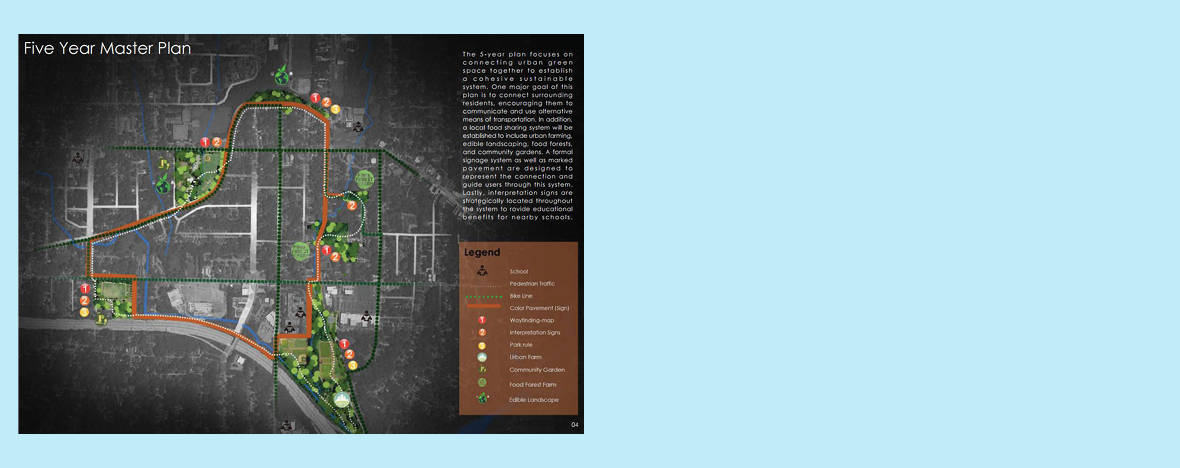
Growing Edges
Location: Atlanta, Georgia, USA
Team: Mark Beatty, Fuyu Yang, Tianyu Wu, Shuang Xi
Institution: University of Georgia
Focused on the City of Atlanta, Growing Edges proposes a redesign of the local street network and the establishment of a trail system to provide safe, alternative transport routes and local food sources. With green spaces currently limited, the redesign would expand urban agricultural space while also creating safe transportation corridors for pedestrians and cyclists.
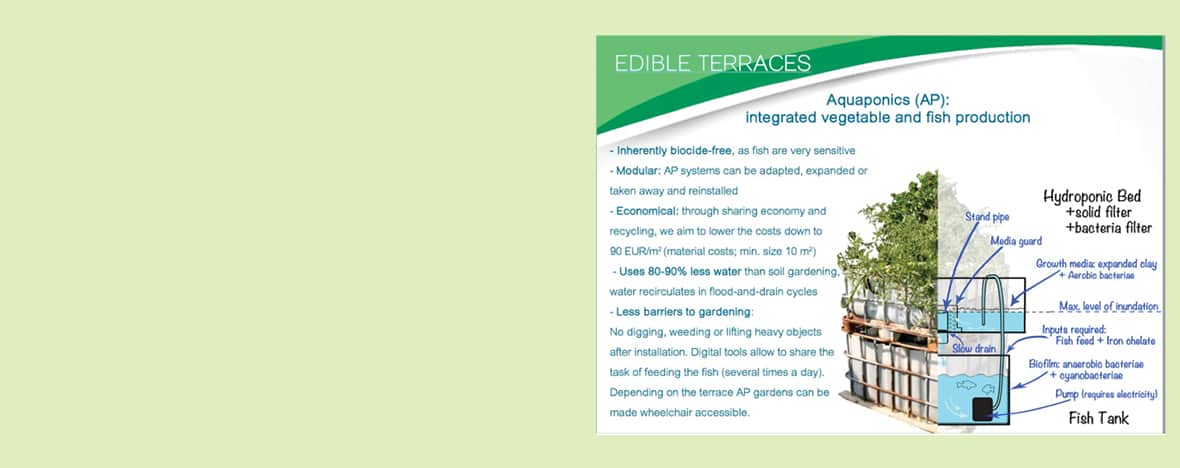
Edible Terraces
Location: Barcelona, Spain
Team: Javier Montellano-Lopez, Aurora Serra Canta, Mikel Ortiz Moral
Institutions: Stockholm University, University of Barcelona
There are 1,764 hectares of roof terrace space available in Barcelona that could be transformed into community gardens. Because aquaponics is water-based, pesticide free and does not require soil, this endeavor seeks to develop a modular and scalable concept of gardening for every type of residence, and create a quantum leap in food production and resiliency.
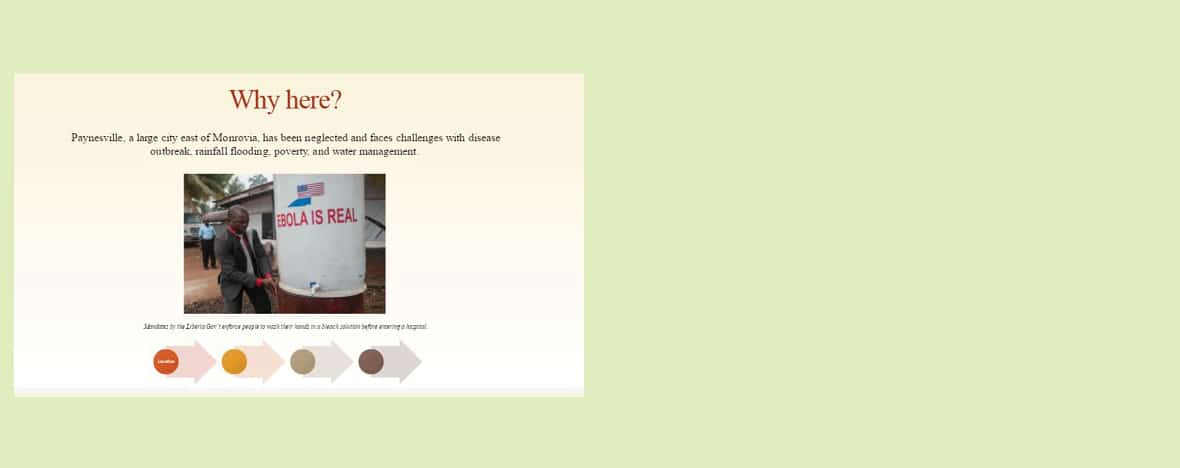
Filtering Out Payne
Location: Paynesville, Liberia
Team: Elena Pierce, Marshall Lewis, Charles Sargent, Thierry Hall
Institutions: Cal State Polytechnic University (Pomona), University of Southern California
With Liberia facing disease outbreak, rainfall flooding, poverty and water management challenges, this team aims to alleviate these issues by introducing an easily accessible, scalable water filtration method that uses low power, off grid pumps to push water through a simple membrane filter. The plan will also map the filter on the community GIS and offer an education program.

Urban SOS: Fair Share
Urban SOS is an annual student ideas competition presented by AECOM and Van Alen Institute, in collaboration with 100 Resilient Cities — Pioneered by The Rockefeller Foundation. Learn more.